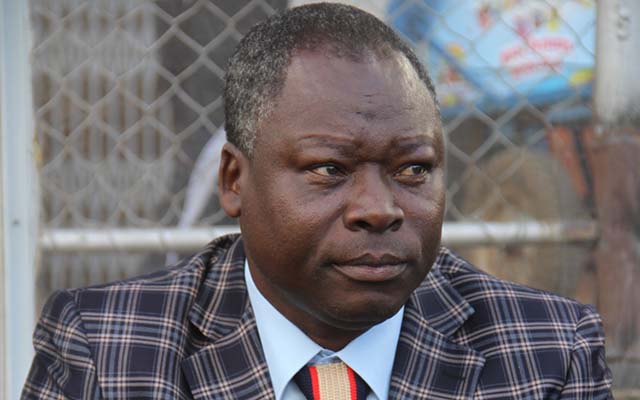ZCC Mbugo: An inviolable religious beacon

Freedom Mupanedemo Features correspondent
It’s a windy Friday morning and to the eastern side of Masvingo city, the Christian community’s euphoric mood is underlined by an incessant, rich sound of trumpets. The choral sound of the trumpets is in striking unison with humming voices of partakers defiantly singing their lungs out as if in an effort to outshine the trumpets. After driving for about 30km in the direction of the inviting sound, a tall white and green super structure appears, towering above everything else, its shining all white walls perhaps representing purity and the green canopy reminding us of the life and holiness of the place we are approaching after branching from the Masvingo-Bikita highway.
We are at the Zion Christian Church (ZCC) headquarters — this marvel of a structure — popularly known as the ZCC Mbungo, just outside Masvingo city.
There, a sea of green, beige, white, and yellow, greets us. With our satin and blue jeans, I and my colleague are the odd ones out but the hospitable response from every cleric we speak to as we snake our way through the multitudes to get near the centre of attraction ignites some sense of belonging in us. Thousands of ZCC members from South Africa, Botswana, Mozambique and other countries are gathered for the Holy Communion.
In the special round shaped state-of-the art building, everyone seem fixated to the goings on and the agenda of their coming together in such numbers.
The two-storey building which accommodates thousands of people is filled to capacity.
Men and women, boys and girls — all are on their toes praise-singing and dancing with a sense of belonging.
The church band clad in khaki suits with some wielding trumpets is the major centre of attraction to the visitor.
They sing, dance and blow trumpets in a sway and swish fashion. With drops of sweat rolling down their cheeks, they take turns to go onto the dance floor tirelessly.
Then a signal is passed to the effect that the church bishop, Nehemiah Mutendi is about to take to the pulpit to deliver his speech and in admittance they bow and kneel to pray before taking seats. Beautiful, isn’t it?
Nehemiah Mutendi, now the leader of the church, is son to the founder of the church, Samuel, a supernatural Man of God with a glaring history of a true and great prophet ever to emerge in Zimbabwe’s prophetic circles.
Mutendi’s was ‘‘called’’ in 1913 while working as a policeman under the British South African Police in Hartley, now Chegutu. He was later expelled from the force over his innumerable Pentecostal seizures during which he would speak in tongues.
Unlike today’s preachers who enjoy the privilege of moving in a free Zimbabwe accompanied by legions of bodyguards with what many have sardonically termed ‘‘gospreneurship’’ tendencies — preaching the gospel for financial gains — Samuel pursued his vision in a very hostile and brutal environment.
He was arrested several times and later condemned to places such as Defe in Gokwe that were considered inhabitable at the time yet Mutendi survived.
On 20 July 1976 the great man passed on and reportedly God revealed Mutendi’s glory by carving his portrait on a star in the night sky (now commonly referred as Nyeredzi yaSamere) three days later.
This marked the end of an era for the great man but he left a rich legacy of worship. A recent visit to the church’s Easter celebrations revealed that the church was still growing.
Mutendi is interred at a shrine at Defe, Gokwe, where members of his church flock every year to commemorate his lifetime achievements.
His successor, Nehemiah, has perfectly fitted into his father’s boots and is taking his father’s legacy forward. He undertook to build the ZCC Mbungo between 2006 and 2011.
The $2 million monumental structure is today probably one of the biggest churches in Southern Africa and can accommodate up to 13 000 congregants.
On August 6, 2011, Tourism and Hospitality Minister Engineer Walter Mzembi certified the ZCC (Mbungo) shrine as a religious tourism destination.
Today, the shrine is a tourist attraction, which visitors touring Masvingo cannot afford to omit from their list. — Southern Times










Comments